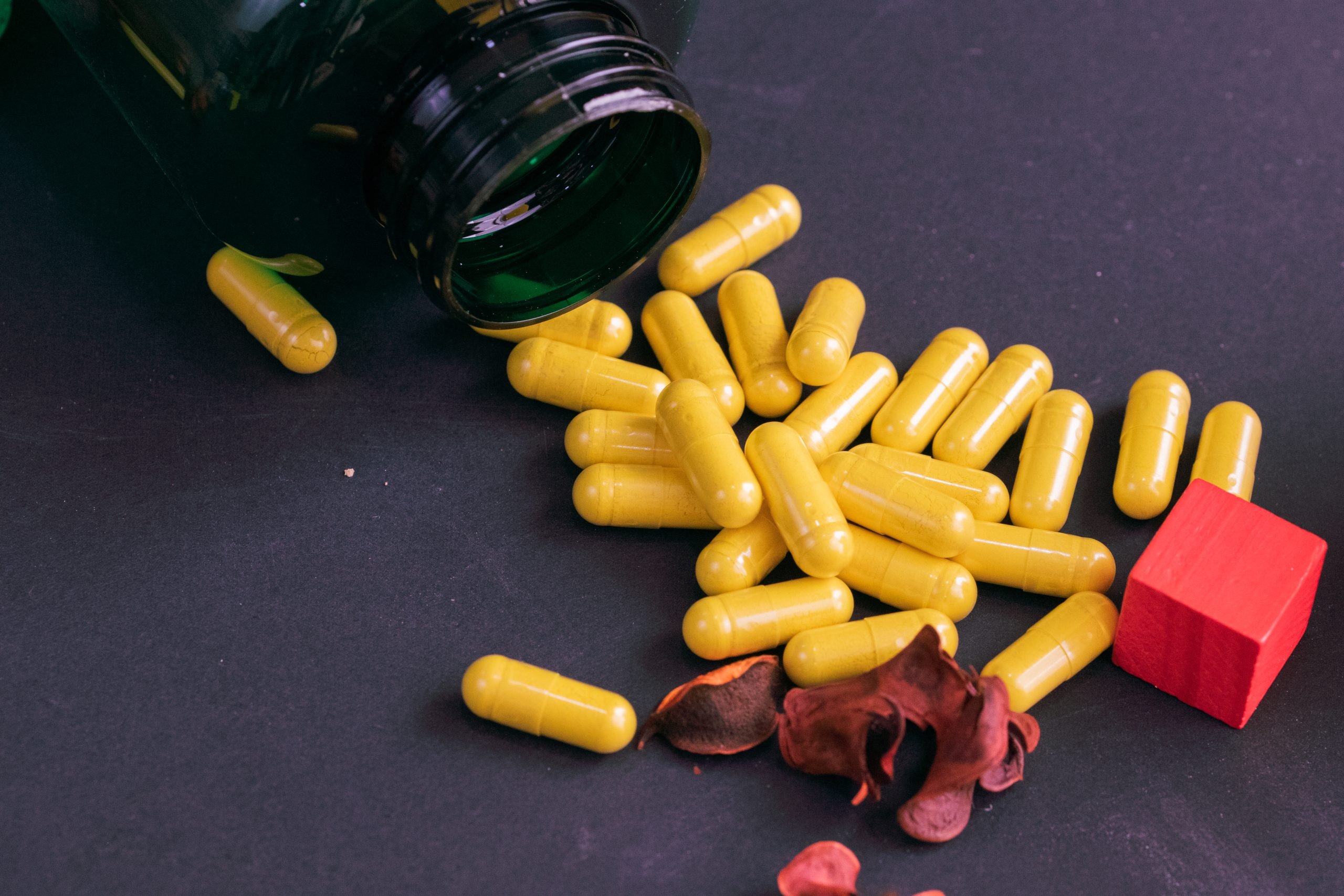Are you wondering about how to select the right berberine supplement from a variety of commercially available products? Get the answers to common questions about the best berberine supplement based on the ingredient, delivery technology, bioavailability enhancement, and absorption. Use the links below to jump ahead to different topics on the page.
The Need for A Berberine Supplement

Although berberine is naturally found in the roots, rhizomes, and stem bark of plants like the barberry tree, it is not typically consumed in the average diet.. Given berberine’s broad range of health-supportive properties–including its role in metabolic, cardiovascular, and cellular health–regular supplementation can be a valuable way to ensure consistent intake.*
| Why Do You Need A Berberine Supplement? | |||
|---|---|---|---|
| For enhanced safety: | Raw berberine displays poor safety due to variable alkaloid content, whereas supplements can be formulated to enhance berberine’s safety profile by purified extraction. | ||
| For enhanced palatability: | Berberine has a distinctive bitter taste that can inhibit user compliance for some. Newer supplement formulations enhance the palatability of berberine for oral intake. | ||
| For better absorption: | Raw berberine displays poor membrane permeability. Berberine supplements address the shortcomings of unformulated berberine by optimizing solubility and absorption. | ||
Key Uses of Berberine Supplements
The health-promoting benefits of berberine are attributable to the following factors:
- Antioxidant properties: Berberine is an antioxidant that exerts an inhibitory effect on oxidative stress.*
- Immunomodulatory properties: Berberine regulates several of the body’s signaling pathways, such as AMP-activated protein kinase (AMPK) and nuclear factor κB (NF-κB), which helps maintain a balanced inflammatory response in the body.*
Research studies have established the beneficial impact of berberine supplements on maintaining healthy blood glucose levels, lipid levels, and inflammatory markers.*
The following are some of the key uses of berberine supplements for supporting optimal health functions.
| System | Benefits |
|---|---|
| Endocrine Health* | Berberine supplements help address irregular periods and infertility arising from hormonal imbalance in women1. Berberine has been found to enhance insulin sensitivity and regulate lipid metabolism to promote healthy weight management in affected females2. |
| Cardiovascular Health* |
Various studies have established the
potential benefits of berberine for providing nutritional support in diabetes
.3 Berberine supplements support normal lipid metabolism, which can reduce low-density lipoprotein (LDL) levels and promote cardiovascular health. Normal glucose metabolism , including promoting insulin secretion and moderating intestinal absorption of glucose.* A meta-analysis overviewing the benefits of berberine found a positive relationship between berberine supplementation and positive healthcare outcomes in individuals with Type 2 Diabetes Mellitus4. |
| Immune Health* | Berberine supplements help maintain immune health by up-regulating beneficial cell-mediated immune responses.* |
| Hepatic Health* | Berberine supplements promote optimal liver detoxification — By decreasing glucose generation from non-carbohydrate precursors.* By enhancing ammonia detoxification in the liver.* |
| Neuro-Hormonal System* | Berberine supplements optimize the benefits of exercise and support healthy weight management by limiting exercise-induced exhaustion and muscle damage incurred during exercise .* |
| Gastrointestinal Health* | Berberine supplements promote a balanced and healthy gut microbiota, particularly by enhancing the growth of the bacteria that produce short-chain fatty acids. |
Forms of Berberine Supplements
Berberine’s naturally low bioavailability has caused the research community to explore ways to increase its concentration in the blood.
Although injecting berberine offers a direct approach to enhancing its bioavailability by bypassing its breakdown in the gastrointestinal tract, injecting berberine can lead to adverse side effects. This makes oral intake of berberine a more popular and safer approach.
As commercially available nutritional supplements, berberine supplements are available in different forms, including —
- Tablets
- Capsules
- Fluid extracts
- Topical gels (indicated for certain skin conditions and pain relief*)
Berberine Supplement Ingredients
When considering what are the best berberine supplements, you are looking for optimal absorption and bioavailability. So, which berberine ingredient makes the best berberine supplement?
- Berberine hydrochloride: It is the primary ingredient in most oral berberine supplements. A single supplement capsule typically contains 400-500 mg of berberine.
- Berberine organic acid salts: One approach to enhancing berberine’s bioavailability is to convert it into a salt compound. Berberine organic acid salts are used in specific formulations to enhance absorption.
- Sodium caprate: Adding sodium caprate to a supplement formulation has been found to enhance berberine’s absorption in the small intestine.
Palatability of Berberine Supplements
Certain berberine supplement forms have an intensely bitter taste, which may impede user compliance. oor palatability of berberine supplements can be due to:
- Properties of Berberine Chloride: As a primary supplement ingredient, berberine chloride has high aqueous solubility, which makes it challenging to mask its bitter taste.
- Conventional Delivery Methods: Berberine supplements formulated with conventional delivery methods use higher amounts of berberine chloride salt to counter berberine’s poor natural bioavailability.
Berberine’s naturally bitter taste, combined with the activation of bitter taste receptors in the mouth, makes many berberine supplements unpalatable. A well-formulated berberine supplement can help overcome this issue by slowing the release rate of berberine molecules and reducing the concentration of free molecules in the saliva, thus masking berberine’s unpleasant taste.
Delivery Technologies Used in Berberine Supplements
Although berberine has immense health-promoting potential, developing a successful delivery system poses various challenges. Berberine’s naturally low bioavailability and poor absorption have led to the investigation of alternative modes and methods of nutrient delivery.
The following are some of the standard delivery technologies used in berberine supplements:
| Standard Delivery Technologies in Berberine Supplements | |||
|---|---|---|---|
| Conventional Delivery |
Traditional delivery is targeted toward masking the bitterness of a relatively higher amount of berberine. Drawbacks: The berberine tablet coating process is not easy to control accurately. Coating thickness, uniformity, and tablet adhesion are major challenges. For sugar coating, the amount of coating materials is generally larger. |
||
| Polymer-Based Delivery |
Encapsulating berberine in polymers, such as sodium alginate and calcium alginate, is a popular approach to enhance absorption. Drawbacks: Polymer-based drug delivery has certain limitations, including low drug loading capacity and cellular toxicity. |
||
| Lipid-Based Delivery |
This involves encapsulating berberine in a lipid-based microscopic bubble to prevent its degradation in the gastrointestinal tract. Drawbacks: Lipid-based delivery is susceptible to enzymatic degradation of active nutrients, displays physical and chemical instability, and has poor oral bioavailability. |
||
| Nano-Based Delivery |
These formulations use nanotechnology, including cyclodextrins, nanogel, nanoparticles, and nano-suspension, for targeted delivery of berberine at the desired point in the intestinal tract. Advantages: A nano-formulated berberine supplement is better absorbed in lesser amounts than required with other delivery methods, while masking the unpalatability of berberine to better achieve user compliance. |
||
Bioavailability Challenges of Berberine Supplements
| The absolute bioavailability of raw berberine is as low as 0.68 percent. |
|---|
Studies2 reveal that less than five percent of oral intake of berberine is absorbed in the intestine in 2.5 hours of its ingestion. It is berberine’s poor natural bioavailability that hinders its efficacy in supplemental form.
The following are key factors that affect the absorption of berberine:
| Factors Affecting Berberine Absorption | |||
|---|---|---|---|
| Solubility and permeability | Berberine’s low water solubility hinders berberine molecules from moving across the plasma membrane of intestinal cells. | ||
| Stability in the GI tract environment | The tendency of berberine molecules to self-aggregate in a low pH environment leads to poor absorption in the stomach and small intestine. | ||
| Extensive Metabolism | Berberine undergoes extensive intestinal first-pass elimination, with a majority of berberine being metabolized in the liver. | ||
Side Effects of Berberine Supplements
The short-term safety profile of berberine is well-established, although there is limited data on its effects on pregnant and breastfeeding women. Furthermore, berberine can cause mild or infrequent side effects or have potential contraindications when taken with certain prescription medications.
The following table highlights some of the common side effects of berberine supplements:
| Berberine Supplement Side Effects | ||
|---|---|---|
| Gastrointestinal side effects | Constipation, diarrhea, flatulence, and stomach pain. | |
| Low glucose level | Prolonged intake of a berberine supplement in high amounts might cause a low glucose level. | |
| Potential contraindications | Berberine supplements might cause adverse effects when taken with a medication that is metabolized via the CYP enzymes. | |
The possible side effects of a berberine supplement depend on the delivery route (type of formulation) and the duration of intake. Hence, it is recommended to consult your healthcare provider before including a berberine supplement in your diet or taking one with a prescription medication.
Including an Excellent Berberine Supplement in Your Diet
When looking for the best berberine supplement, you should consider:
- Enhanced palatability
- Optimized absorption
- Enhanced bioavailability
Tesseract Medical Research’s BerberActiv® is an innovative, palatable, and hypoallergenic berberine supplement containing a berberine extract derived from the root of the Berberis aristata plant. The following factors make BerberActiv an excellent choice as a berberine supplement.
- Nanodelivery technology: BerberActiv utilizes Tesseract’s proprietary CyLoc® – DexKey® nutrient delivery nanotechnology for unprecedented absorption of the berberine molecules at the desired point in the intestinal tract — one molecule at a time.
- Enhanced Palatability: Encasing individual berberine molecules in their own cyclodextrin fiber delivery cage masks the bitter taste of berberine and enhances the formulation’s palatability.
- Micro-dosing: Berberine’s enhanced absorption means that micro-dosing—the ingestion of a lesser amount of berberine—can still achieve a powerful and rapid response to support overall health.
BerberActiv® is manufactured following Good Manufacturing Practices (GMP) that implement scientifically advanced analytical techniques and quality control systems. This ensures the supplement formulation’s unparalleled efficacy in supporting overall health and wellness.
The power of Tesseract supplements lies in enhancing palatability, maximizing solubility, absorption, and bioavailability, and micro-dosing a single or multiple nutrients in a single, highly effective capsule. Shop products on our website and learn more about how they support immune health.
Citations:
1Di Pierro F, Sultana R, Eusaph AZ, et al. Front Pharmacol. 2023;14:1269605. Published 2023 Nov 21. doi:10.3389/fphar.2023.1269605
2Rondanelli M, Infantino V, Riva A, et al. Arch Gynecol Obstet. 2020;301(1):53-60. doi:10.1007/s00404-020-05450-4
3Guo J, et al. Oxidative medicine and cellular longevity vol. 2021 2074610. 15 Dec. 2021, doi:10.1155/2021/2074610
4Moon JM, et al. Nutrients vol. 14,1 124. 28 Dec. 2021, doi:10.3390/nu14010124


